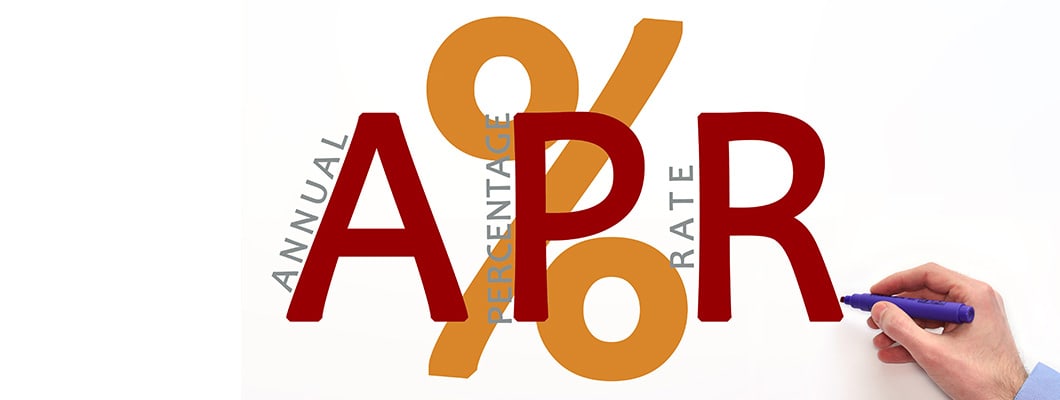
Credit Card Repayment: Watch Out For APR Interest
Posted on Tuesday, February 27th, 2024 | By IndusInd Bank
Your credit card opens up the world of personal finance to you. It offers a convenient and rewarding way to spend money online or offline. However, credit cards need to be used responsibly. Money spent on a credit card can be considered a short-term loan that the borrower needs to pay back within a specified time duration. If one fails to pay back the owed money during the grace period, they are charged an interest. The percentage of interest charged on credit card debt is called the annual percentage rate or APR.
Pick a Credit Card with a Low APR
It is worth finding a credit card with a low or reduced annual percentage rate or APR. Reduced APR allows you to use your credit card without the stress of high interest. This way, you can finance your next vacation, buy your dream outfit, or even purchase a car through your credit card.
Commonly, credit card interest or APR is meaningfully higher than other forms of credit – like a personal loan, home loan, or a line of credit. It means the best way to pay credit card bills is to pay in full. Here are some tips to help you with your credit card repayment if you are in debt.
1. Acknowledge It To Yourself
It is common to have a strong reaction to being in any kind of debt. However, when you accept being in debt, you can begin the steps to completecredit card bill payments. It is important to remember that credit card interest is often higher than other loans. It means paying your credit card bill in full, should be a higher priority.
2. Make Repayment A High Priority
Often, people wonder why they should clear credit card dues promptly. It’s due to their higher interest rates, called the annual percentage rate or APR. As per the logic of this interest rate, it is recommended to pay your credit card bill fully as quickly as possible. It should be a higher priority, which means it comes before other payments. An unpaid credit card bill may cost you more in interest than a home loan or a car loan until it is paid in full.
3. Automate Payments Where Possible
Automating recurring tasks can help you preserve your energy. For example, automating can be a simple answer to how to repay credit card bills without fail and delays. By automating your credit card bill payment, you can ensure timely and hassle-free repayments. This lets you save interest and optimise the remainder of your income or cash in hand.
4. Review and Alter Your Monthly Budget
The typical framework for a budget is 50% towards needs, 30% towards wants or lifestyle expenses, and 20% towards savings and investments. While you are repaying credit card debt, it is worth altering your budget for the duration. This may mean a moderate dip in lifestyle or short-term sacrifices till your debt is repaid.
5. Practice Moderation
While reviewing your monthly budget to reduce expenses, you can develop new spending habits. Moderation is often looked at as pain or sacrifice. However, sometimes we may notice that we are spending on things we don’t particularly want or enjoy. Moderation or reducing your spending on unnecessary things can be unlocked in different ways. It can mean being more intentional about what you spend on and why, without sacrificing what matters to you.
Credit card debt can be stressful because of its higher interest rates. However, you can escape credit card debt with clear-sighted action. Typically, this includes accepting your situation of being in debt to decisively act your way out. Start with making credit card bill repayment your highest priority.
Remove decision-making from this equation by considering automating credit card bill payments. You may have to review your monthly budget for this. Use your budget review to remove any expenses that may have become defaults you no longer find value in. Finally, consider a low APR credit card so you can use it without the stress of high interest.
Explore IndusInd Bank credit cards that suit your needs. We offer some great credit cards which you can apply for online as well.
Disclaimer: The information provided in this article is generic in nature and for informational purposes only. It is not a substitute for specific advice in your own circumstances. Hence, you are advised to consult your financial advisor before making any financial decision. IndusInd Bank Limited (IBL) does not influence the views of the author in any way. IBL and the author shall not be responsible for any direct/indirect loss or liability incurred by the reader for taking any financial decisions based on the contents and information.



 Offers
Offers Rates
Rates Debit Card Related
Debit Card Related Credit Card Related
Credit Card Related Manage Mandate(s)
Manage Mandate(s) Get Mini Statement
Get Mini Statement
 categories
categories Bloggers
Bloggers Blog collection
Blog collection Press Release
Press Release


